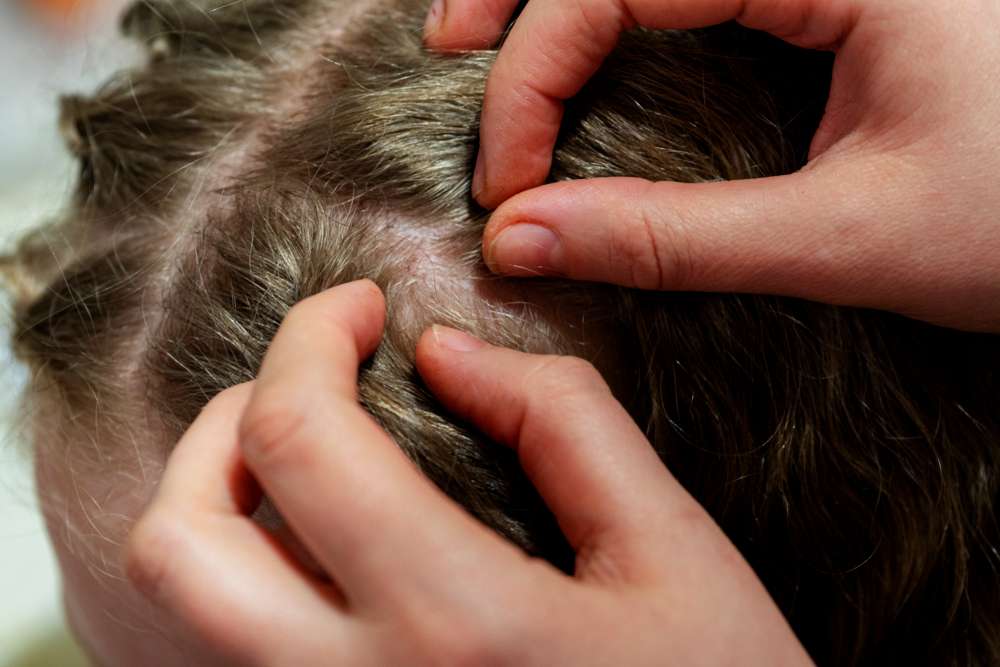Managing Scalp Psoriasis: Effective Care and Treatment Options
Psoriasis is a chronic skin condition that can affect various parts of the body, including the scalp. For those experiencing scalp discomfort, choosing the right shampoo is an essential part of daily care. The scalp can become dry, flaky, or irritated, making routine hair washing a challenge. Selecting a suitable shampoo is not just about cleansing the hair but also about maintaining scalp comfort and supporting overall scalp health. Many individuals seek information on what ingredients to look for, which products are gentle, and how to establish a hair care routine that minimizes discomfort. This article aims to provide clear, practical guidance on selecting shampoos for sensitive or psoriasis-prone scalps, focusing on natural care, ingredient awareness, and lifestyle tips.

Scalp psoriasis is a common autoimmune condition that manifests as red, scaly patches on the scalp, often extending to the hairline, forehead, and behind the ears. Unlike dandruff, this condition involves thick, silvery scales and can cause significant discomfort. The condition affects approximately 2-3% of the global population and can range from mild scaling to severe, widespread inflammation that impacts quality of life.
Key Considerations When Choosing a Shampoo
Selecting the right shampoo for scalp psoriasis involves understanding active ingredients and their mechanisms. Coal tar shampoos help slow skin cell production and reduce scaling, while salicylic acid formulations assist in removing built-up scales. Zinc pyrithione and ketoconazole offer antifungal properties that can address secondary infections. The concentration of active ingredients varies significantly between over-the-counter and prescription formulations, with stronger concentrations typically requiring medical supervision.
Consider your scalp’s sensitivity level when making selections. Some individuals experience irritation from coal tar products, while others find salicylic acid too drying. Starting with lower concentrations and gradually increasing strength allows your scalp to adapt. Additionally, fragrance-free formulations reduce the risk of additional irritation, particularly important for sensitive scalp conditions.
How to Use Shampoo for Psoriasis-Prone Scalps
Proper application technique maximizes treatment effectiveness while minimizing potential irritation. Begin by wetting hair thoroughly with lukewarm water, as hot water can worsen inflammation. Apply the medicated shampoo directly to affected areas, gently massaging with fingertips rather than nails to avoid further irritation. Allow the shampoo to remain on the scalp for the recommended contact time, typically 3-5 minutes for most medicated formulations.
Frequency of use depends on severity and product type. Coal tar shampoos may be used 2-3 times weekly initially, while gentler formulations can be used daily if needed. Rotate between different active ingredients to prevent tolerance buildup and maintain effectiveness. Follow medicated shampoo with a gentle, moisturizing conditioner applied only to hair lengths, avoiding the scalp to prevent pore clogging.
Guide to Shampoos for Psoriasis
Medicated shampoos form the cornerstone of scalp psoriasis management. Coal tar preparations remain among the most effective options, available in concentrations ranging from 0.5% to 5%. These products work by slowing excessive skin cell production and reducing inflammation. Popular formulations include those containing liquor carbonis detergens or crude coal tar.
Salicylic acid shampoos excel at scale removal and are often recommended as first-line treatments. Concentrations typically range from 1% to 3%, with higher strengths available by prescription. These keratolytic agents soften and remove built-up scales, allowing other treatments to penetrate more effectively. Combination products containing both salicylic acid and other active ingredients offer comprehensive treatment approaches.
Selenium sulfide and zinc pyrithione represent additional options, particularly effective for individuals with concurrent seborrheic dermatitis. These antifungal agents address potential yeast overgrowth while providing anti-inflammatory benefits. Prescription options include topical corticosteroids in shampoo form, offering potent anti-inflammatory effects for severe cases.
Understanding Shampoo Choices and Care Tips
Beyond active ingredients, understanding formulation differences helps optimize treatment outcomes. Gel-based shampoos often provide better contact time and ingredient penetration, while cream formulations offer additional moisturizing benefits for dry, irritated scalps. pH-balanced products maintain scalp health and prevent excessive dryness that can worsen symptoms.
Complementary care practices enhance shampoo effectiveness. Regular scalp moisturizing with non-comedogenic oils or specialized scalp treatments prevents excessive dryness. Gentle brushing with soft-bristled brushes removes loose scales without causing trauma. Sun exposure, in moderation, can provide therapeutic benefits, though sunscreen application to exposed scalp areas prevents burning.
Stress management plays a crucial role in psoriasis control, as emotional stress often triggers flare-ups. Regular exercise, adequate sleep, and stress-reduction techniques contribute to overall treatment success. Dietary modifications, while not definitively proven, may help some individuals, with anti-inflammatory foods potentially providing benefits.
| Product Type | Active Ingredient | Cost Estimation | Key Benefits |
|---|---|---|---|
| Coal Tar Shampoo | Coal Tar 1-5% | $8-25 per bottle | Reduces scaling, slows cell production |
| Salicylic Acid | Salicylic Acid 2-3% | $6-20 per bottle | Removes scales, improves penetration |
| Antifungal Shampoo | Ketoconazole 2% | $12-30 per bottle | Addresses secondary infections |
| Prescription Steroid | Clobetasol 0.05% | $40-80 per bottle | Potent anti-inflammatory effects |
Prices, rates, or cost estimates mentioned in this article are based on the latest available information but may change over time. Independent research is advised before making financial decisions.
Managing scalp psoriasis requires patience, consistency, and often a combination of approaches. While medicated shampoos provide the foundation of care, success depends on proper application techniques, appropriate product selection, and comprehensive scalp care routines. Regular dermatological consultation ensures care plans remain effective and adjustments are made as needed. With proper management, most individuals can achieve significant symptom relief and maintain healthy scalp conditions.
This article is for informational purposes only and should not be considered medical advice. Please consult a qualified healthcare professional for personalized guidance and treatment.




